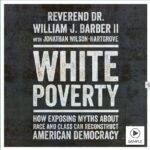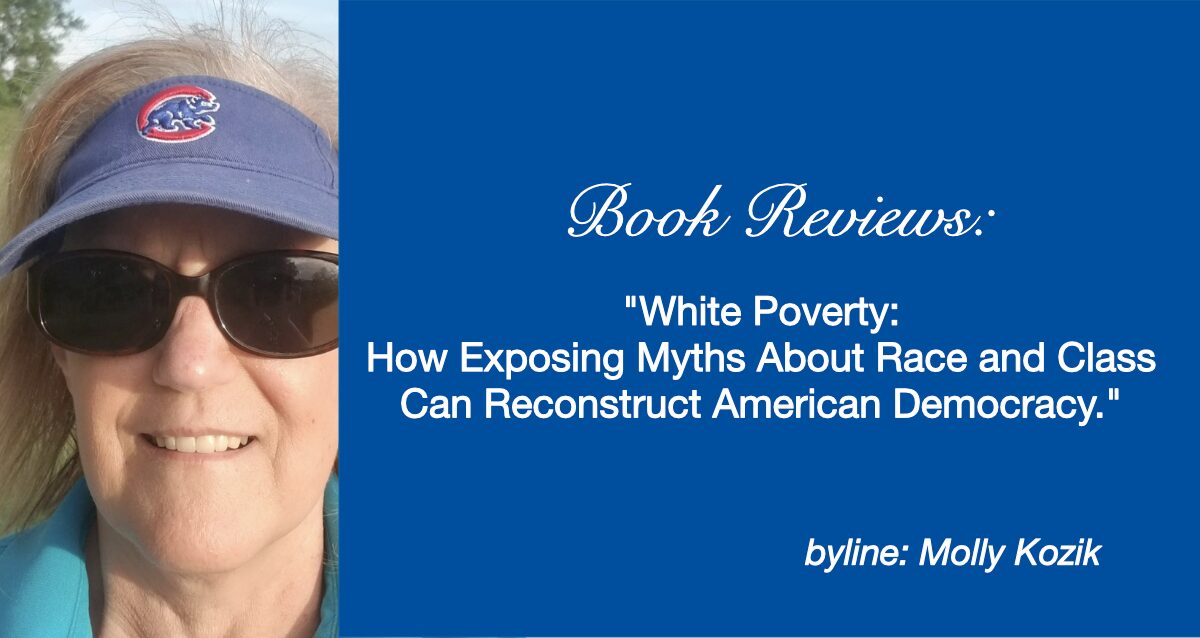In June 21, 2024, when President Biden was still running against former President Trump for President, I happened to tune in The Daily Show and watched Jon Stewart interview Rev. Dr. William Barber II. Well, it wasn’t really an interview, Stewart sat back and let Rev. Barber preach about the contents of his new book, “White Poverty: How Exposing Myths About Race and Class Can Reconstruct American Democracy.“
Barber explained to Stewart and goes in depth in his book, that although he is a Black minister, he sees commonalities between the Black poor people he ministers, and the millions more White poor people.

Barber founded Moral Mondays in 2013 in his home state of North Carolina. Moral Mondays is a nonviolent protest movement focused on moral public policies that respond to the needs of the poor people in the United States. Moral Mondays is a continuation of The Poor People’s Campaign that Martin Luther King, Jr. started before his assassination in 1968.
In his travels around the South and across the country with Moral Mondays, Barber gives us examples in his book of the people he met and how he gave them the opportunity to come together as one voting block to get their voices heard by elected officials in Washington, D.C. He tells intimate stories from people in need and shows that there is hope in bringing poor people together.
“The elusive ‘independent swing voter’ wasn’t going to rescue American Democracy. We needed a movement to engage people who hadn’t voted because they’ve never imagined the system could work for them. Poor people were the voters who could swing any election,” Barber wrote.
Barber gathered a busload of Black city dwellers in Louisville to visit a White church in Eastern Kentucky. Barber showed the group a map of the United States that highlighted the highest levels of poverty in the country. He then highlighted areas that passed voter suppression laws since 2010, states that refused to expand Medicare and states that passed anti-abortion and anti-LGBTQ laws. And finally, he displayed a map of the highest concentration of White Evangelical Protestants. The maps all overlapped each other.
A man in the back of the room asked Barber to show the maps again and he said, “Well I’ll be damned. They’ve been playing us against one another.”
As I read this book in the summer before the November election, I hoped that Barber and his Poor People Coalition and Moral Mondays would change enough voters to bring blue votes to Kentucky, North Carolina, Ohio, Pennsylvania and other swing states. But it didn’t happen. Sadly, when Trump’s “Big Bill” takes effect in the next two years, these voters might finally realize that the Republicans they voted for do not make policies and law that benefit poor people.
Kane County Democratic Women would benefit from reading this book together and finding action we can take here in our communities to form a new group of moral voters to combat the legislation coming out of Washington.

